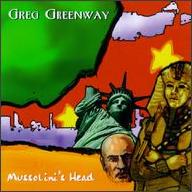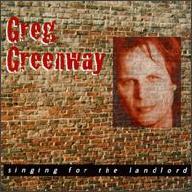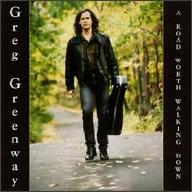Born in Richmond, Virginia, Greenway became increasingly interested in songwriting while attending Williamsburg's William and Mary College. During a trip to Boston, he was inspired by the city's thriving folk scene and after graduating headed north to settle in Massachusetts and forge a music career. An early partnership with bassist Doug Wrey in the late '70s led to various gigging opportunities touring throughout New England. He later formed the band Trace of Red, but it was Greenway's solo work that ultimately earned him the most success. Released in 1992, his debut album, A Road Worth Walking Down, was nominated for a Boston Music Award, as was his anthemic "Free at Last," a song inspired by Nelson Mandela's imprisonment. Indicative of his wide range, the album also included "Massachusetts," a witty paean to the state's road conditions which also found favor on NPR's Car Talk radio program.
Over the next decade, Greenway released additional albums like 1995's Singing for the Landlord and 2001's Something Worth Doing, which explored themes of social injustice as well as more personal introspections and observations. By the end of the 2000s, he'd amassed a significant body of solo work and kicked off the next decade with a new collaborative project called Brother Sun. Made up of Greenway, Joe Jencks, and Pat Wictor, Brother Sun focused on rich three-part harmonies with touches of jazz, gospel, and pop added to their mix. The trio released three albums between 2011 and 2016, after which Greenway issued his seventh solo album, 20,000 Versions of the Sun. Three years later, he teamed up with folk singer Reggie Harris for a collaborative live project called Deeper Than the Skin. Inspired by Civil Rights and the racial divisions within America, Greenway and Harris curated a unique live show and series of workshops that utilized song, storytelling, and poetry. The project resulted in the 2019 release Deeper Than the Skin: A Musical Presentation of Race in America. ~ Timothy Monger, Rovi















